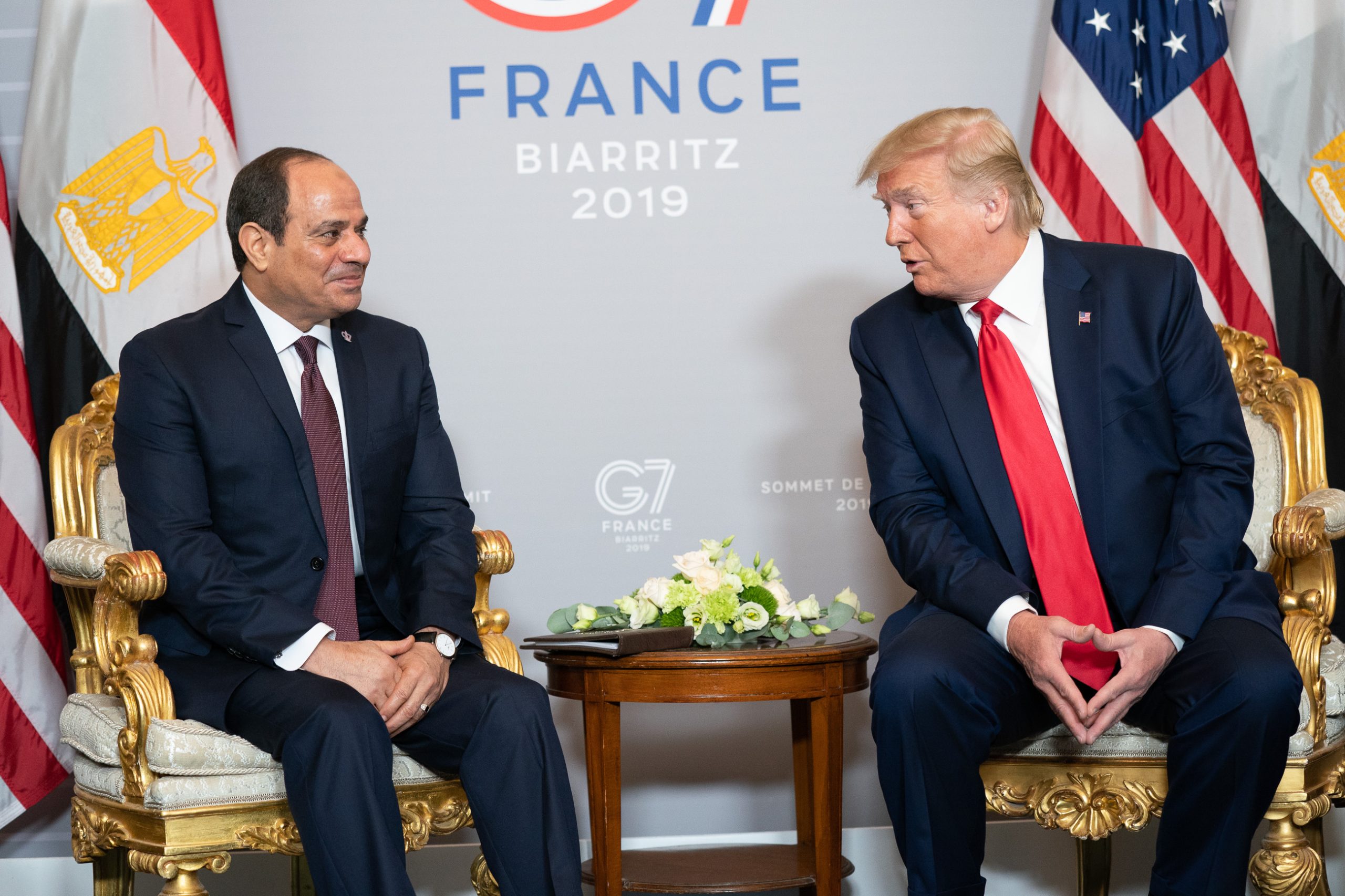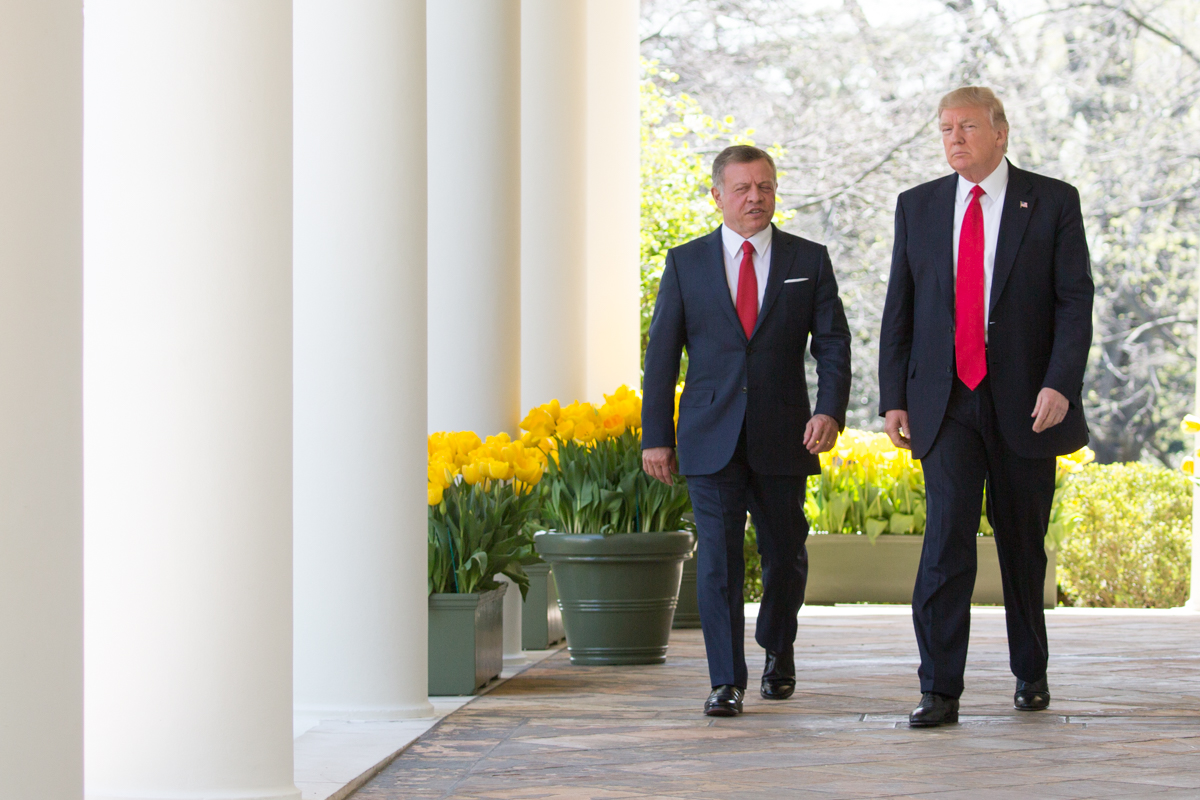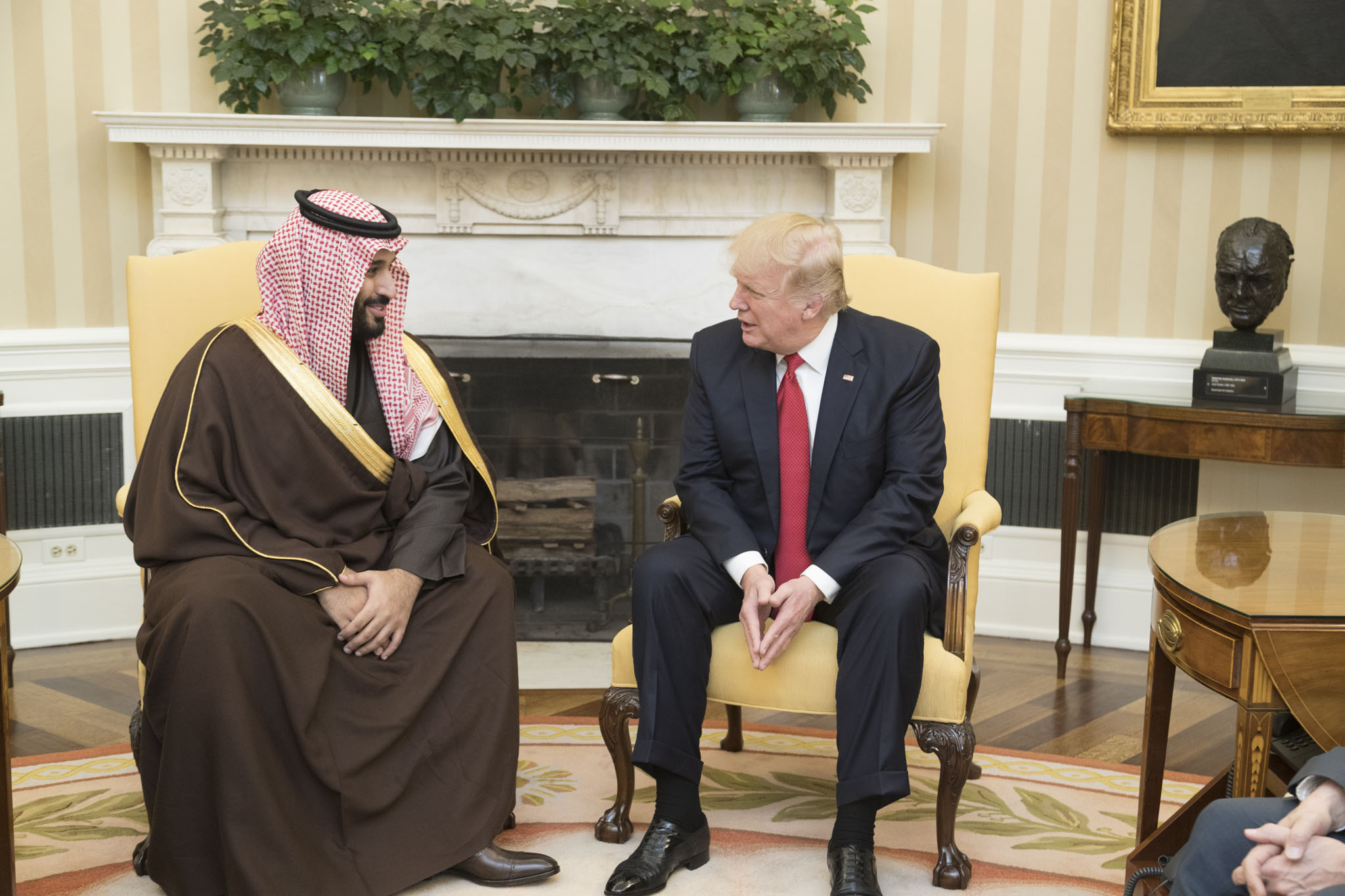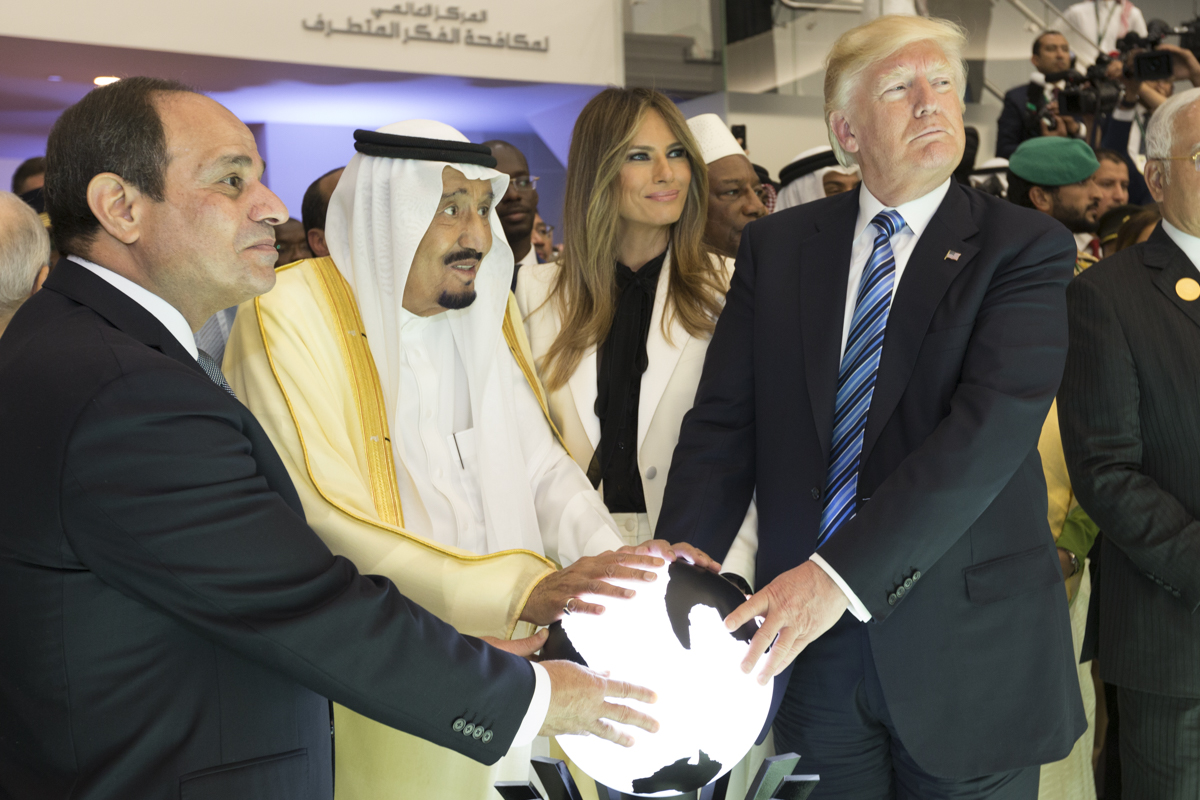Publications
INSS Insight No. 1939, February 5, 2025
In his second term, US President Donald Trump is unlikely to pursue the same Middle East policy as in his first. This shift stems from significant regional changes, including the decline of Iran’s power and its so-called “Axis of Resistance,” the renewed centrality of the Palestinian issue, and the growing strategic importance of the Gulf states in the great-power competition. President Trump’s generally favorable stance toward several regimes in the region, as well as his strong personal ties with key leaders, could generate momentum for the Israeli–Arab normalization process. However, the war against Hamas has reshaped the calculations of key regional players, particularly regarding the necessity of an Israeli–Palestinian settlement—an issue both Trump and Israel will need to consider carefully.
Any attempt to predict US policy toward the Arab states under Trump’s second administration should take into account the great diversity among these countries and the likelihood that his policy approach will not necessarily be the same as in his previous term. This is especially true given the developments in the Middle East following the multi-front war Israel has been fighting since October 7, 2023. The Arab world is far from monolithic, making it essential to analyze its key power centers—Egypt, Jordan, and the Gulf states—to better predict their future relations with the United States. This analysis should also take into account these countries’ strategic importance to Israel.
Egypt
Egypt views the beginning of President Trump’s term with concern, as reflected in official statements from Cairo as well as commentary in the Egyptian media. In general, Egypt’s stance toward the Trump administration can be analyzed through two main lenses: the Palestinian issue and bilateral US–Egypt relations.
The Palestinian issue: From Egypt’s perspective, the Biden administration’s unparalleled support for Israel and its unwavering solidarity from the outset of the war enabled the prolonged fighting in Gaza and later in Lebanon. This conflict resulted in an unprecedented number of civilian casualties and the destruction of Gaza’s infrastructure. Many Egyptian opinion pieces placed blame on the United States—no less than on Israel—for the massacre and “genocide,” as their writers described it. In addition, analysts viewed the United States as having the ability to prevent regional escalation but argued that it refrained from doing so as the war progressed. Despite the US administration’s efforts to bring about a ceasefire, Israel ignored these attempts, possibly in anticipation of Trump’s victory in the presidential elections.

Alongside the widespread public and governmental discontent with the Biden administration, commentators and experts frequently highlight Trump’s past pro-Israel policies, particularly the relocation of the US embassy to Jerusalem, full recognition of Israeli sovereignty over the Golan Heights, and the “Deal of the Century,” which led to the Abraham Accords.
Moreover, significant attention has been given to Trump’s key appointments following his election, including secretary of state, ambassador to the UN, ambassador to Israel, and the special envoy to the Middle East. These choices signal a continuation—and even intensification—of a pro-Israel stance, particularly in supporting the Israeli government and its settlement policy in Judea and Samaria. Furthermore, leading experts, including Amr Moussa, the former secretary-general of the Arab League and Egyptian foreign minister, have warned of an era of “Israeli hegemony,” in which Israel will assert its dominance over the Middle East. They predict that Israel will continue to oppose the establishment of a Palestinian state and that the occupation will persist.
Two recent remarks by President Trump have reinforced these perceptions and provoked strong reactions in Egypt. The first came during his election campaign on August 16, 2024, when he stated that “Israel is tiny”—describing Israel as “a little spot compared to these giant land masses” in the Middle East and suggesting it should be enlarged. The second remark, which made headlines in Egypt, was Trump’s warning that if the Israeli hostages held by Hamas were not released by his inauguration, “all hell will break out in the Middle East.” These remarks were interpreted in Egypt as a signal that he intends to exert aggressive pressure on Hamas and the entire region in Israel’s favor. Commentators noted that such a direct threat had never been heard before and should be taken seriously, given Trump’s unpredictability and willingness to take extreme measures. They concluded that the entire region would pay a high price for Israel’s interests, which they believe will always be defended and fully backed by a Republican administration.
Bilateral US–Egypt relations: For years, US–Egypt relations have remained stable, with minimal confrontational rhetoric. However, tensions resurfaced when the Biden administration, in September 2023, conditioned $320 million of its annual $1.3 billion in aid on measurable improvements in Egypt’s human rights policies, including the release of political prisoners. At the same time, high-level diplomatic engagement continued, with Secretary of State Antony Blinken making frequent visits to Cairo to coordinate positions in response to the war in Gaza.
During Trump’s first term, his strong rapport with Egyptian President Abdel Fattah el-Sisi led to significantly greater US support compared to President Barack Obama’s tenure. Concerns about Egypt’s military procurement needs were eased, and US aid was granted without public conditions relating to human rights—such discussions taking place behind closed doors, while Egypt was advised to avoid direct confrontations with its critics in Washington. Another aspect of American goodwill toward Egypt was a generous loan from the International Monetary Fund (IMF), which played a critical role in stabilizing the Egyptian economy. Expectations for Trump’s second term include continued support for IMF assistance programs as well as backing for Egypt’s stance on the Grand Ethiopian Renaissance Dam (GERD), a position previously endorsed by President Trump.
Egypt’s expectations for the second Trump administration are shaped by several factors: his identity as a businessman who knows how to make deals, his generally favorable stance toward Egypt and President el-Sisi, his pro-Israel policies in the past, and his recent statements on the Palestinian issue. These factors contribute to a cautious assessment, accompanied by concerns that Trump may maintain a similar approach to his previous term, although with some improvements compared to the Biden administration, particularly regarding efforts to end the war in Gaza.
Jordan
For decades, Jordan has maintained a strategic alliance with the United States, enjoying bipartisan support. During the recent US presidential election campaign, Jordan remained neutral, and upon the announcement of the results, King Abdullah congratulated Donald Trump on his victory, expressing hope that they could work together for the sake of regional peace and stability. However, beyond the diplomatic courtesies, it is evident that most commentators close to the Jordanian kingdom are not pleased with Trump’s return to the White House. They believe that his administration will be less favorable to Jordan than the previous one, both in terms of bilateral relations and the broader US policy in the Middle East.
Trump’s first term is remembered in Jordan as a period of stable ties with the United States, during which American aid to the kingdom continued as usual. However, there was no deep personal engagement between the leaders of the two countries, and Jordan remained on the periphery of the Trump administration’s Middle East policy. By contrast, during Biden’s presidency, Jordanian–American relations saw some improvement. In September 2022, Washington and Amman signed an upgraded multi-year (2023–2029) memorandum of understanding guaranteeing Jordan at least $1.45 billion annually in economic and military aid—an increase of 13.7% compared to the previous agreement. For 2025, the annual aid approved by Congress is even expected to reach $2.1 billion. However, the aid to Jordan is currently under a 90-day review initiated by Trump upon taking office, while American aid to Egypt and Israel was exempted and continues as usual.

Unlike Biden, Amman views Trump as not attributing sufficient importance to Jordan’s regional role and instead favoring the wealthy Gulf states, particularly the United Arab Emirates (UAE) and Saudi Arabia. Trump sees these two countries as key US business partners, especially in the arms industry, whereas Jordan, lacking significant resources, is perceived as contributing less to American economic interests. At the same time, however, Jordan recognizes a potential advantage in Trump’s approach to bilateral relations—his administration is less focused on human rights and civil freedoms (although the Biden administration also rarely clashed with Jordan on these issues).
Jordan’s main concern about Trump’s return to office is his regional policy. During his first term, Trump adopted policies that Jordan perceived as pro-Israel and harmful to the Palestinians. The most prominent examples include relocating the US embassy from Tel Aviv to Jerusalem, ending the funding to the United Nations Relief and Works Agency for Palestine Refugees in the Near East (UNRWA), and promoting the “Deal of the Century,” which some in Israel interpreted as an American endorsement of the unilateral application of Israeli sovereignty to territories in Judea and Samaria. For Jordan—where nearly half of the population is of Palestinian origin—these measures represented, and continue to represent, a direct threat to the kingdom’s internal stability and national security. Jordan fears that Trump’s second term could bring an even more extreme policy, especially given Israel’s right-wing government and key figures in Trump’s administration who are known for being strongly aligned with Israel’s position on the Israeli–Palestinian conflict.
The worst-case scenario for Jordan is the renewal of a plan in the spirit of the “Deal of the Century” by the Trump administration in coordination with the Israeli government. From Amman’s perspective, the concrete risks include Israel’s annexation of parts of Judea and Samaria, direct or indirect encouragement of Palestinian emigration from the West Bank or Gaza to Jordan (as Trump recently proposed), and the undermining of Jordan’s special status at the holy sites in Jerusalem. Such actions, as Jordan sees it, would effectively deal a fatal blow to the two-state solution and strengthen the concept of “the alternative homeland”—a scenario in which the Palestinian issue is resolved at Jordan’s expense, jeopardizing its unique national identity. Jordanian commentators associated with the royal house regard such a scenario as a red line or even a declaration of war.
Another risk Jordan perceives in the second Trump administration relates to his policy toward Iran, which is expected to be more hardline and confrontational than Biden’s, potentially escalating regional conflicts that directly affect the kingdom. Since October 7, 2023, Jordan has faced subversive activities by Iran and its proxies within its airspace and territory, as well as disruptions to maritime navigation by the Houthis, affecting access to the Port of Aqaba—Jordan’s only gateway to the sea. At the same time, Trump’s aggressive stance toward Iran also presents potential advantages for Jordan. These include strengthening US deterrence against Iran, further weakening of Iran’s vision of the “Shi’ite crescent,” and curbing Iranian subversion, which has increasingly threatened Jordan’s borders in recent years.
Given the challenges posed by Trump’s return to the presidency, Jordan is likely to take action along two main tracks:
Enhancing Jordan’s strategic value in Washington: Jordan will seek to demonstrate its essential role in maintaining regional security and stability, aligning itself with key issues central to the vision of the Trump administration. These include stabilizing post-Assad Syria and contributing to its reconstruction; counterterrorism efforts, particularly preventing arms and drug smuggling along Jordan’s borders with Syria and Israel; supporting efforts to curb Iran and its regional proxies; maintaining calm in Jerusalem’s holy sites to prevent further unrest; strengthening regional integration by developing natural gas infrastructure, transportation, and trade routes connecting Mediterranean ports to the Gulf states; and participating in Arab–Israeli normalization efforts, while balancing domestic public opinion constraints within the kingdom.
Thwarting a “New Deal of the Century”: Jordan will work to build an international coalition—including Egypt, Saudi Arabia, and the European Union—to persuade the Trump administration to propose an improved framework for resolving the Israeli–Palestinian conflict. The ultimate goal would be a two-state solution and the establishment of a Palestinian state.
From Jordan’s perspective, the war that broke out on October 7 has demonstrated that the Palestinian issue cannot be ignored and that regional stability—particularly Jordan’s own security—depends on finding a just solution. In addition, Jordan regards Israeli–Saudi normalization as the last major leverage that the Arab world holds to push Israel toward making the necessary concessions for a lasting settlement. Conversely, a Saudi–Israeli normalization agreement that excludes a clear diplomatic horizon for the Palestinians could reignite discussions about the “alternative homeland” scenario, a prospect Jordan strongly opposes. As a result, Amman is placing its hope on Saudi Arabia’s influence in Washington and is striving to forge a unified Arab position under Riyadh’s leadership.
The more Jordan can enhance its perceived strategic value and convince the Trump administration to support a political horizon for the Palestinians, the better positioned it will be to balance its competing priorities of preserving its strategic ties with the United States and Israel while managing internal public opinion pressures. Israel, for its part, could encourage the Trump administration to recognize Jordan’s key regional role and advocate for a more considerate approach to Amman’s sensitivities and needs. Israel’s actions in this direction would not only strengthen Jordan and regional stability but could also help improve the strained bilateral relations between Jerusalem and Amman.
Gulf States
The Gulf states generally view Trump’s re-election as a positive development, although strategic preferences and notable nuances exist between them. For example, during Trump’s first term, there were no known personal ties between his administration and Qatar’s leadership, in contrast to the close and even personal relations Trump and his team—especially his son-in-law, Jared Kushner—developed with the rulers of Saudi Arabia and the UAE. Compared to the strained ties with the Obama administration, these relationships played a role in the formation of the Abraham Accords.
Despite the substantial improvement in Saudi and Emirati relations with the Biden administration toward the end of his term, the Gulf monarchies see more advantages than disadvantages in Trump’s return to power. They anticipate closer cooperation and greater attention to their interests in Washington. Apart from the lack of an American response to the attack by Iran and its proxies on Saudi oil facilities in September 2019, Trump’s second term is widely seen as preferable.

First, Trump and several members of his team are already well acquainted with key regional leaders—Mohammed bin Salman, the Saudi crown prince and de facto ruler, and Sheikh Mohamed bin Zayed, the president of the UAE. During his election campaign, Trump lavished praise on bin Salman, calling him a “friend” and even maintained close ties with him during Biden’s presidency. Reports also indicate extensive business dealings between Trump, his family, and the Gulf states. Indeed, Trump’s first talk with a foreign leader since he returned to the White House was with the Saudi crown prince.
Second, similar to his approach toward Egypt, during his first term, Trump did not exert pressure on the Gulf states over human rights issues or the lack of political freedoms. In contrast, Biden was highly critical of Saudi Arabia, even threatening sanctions—particularly in response to the Khashoggi murder and Saudi Arabia’s war in Yemen.
Third, the Gulf states expect Trump will take a more aggressive approach toward Iran than Biden did, leading a campaign of economic and diplomatic pressure to further weaken Iran. This would be in addition to the damage that Iran has already suffered due to Israeli attacks against Iran and its so-called “Axis of Resistance” over the past year.
Finally, in the Gulf states, the Palestinian issue is high on the regional agenda, reflecting its significance in public opinion following the war in Gaza. Consequently, they expect Trump to generate momentum for a regional diplomatic process that includes normalization between Israel and Saudi Arabia, along with progress in the Israeli–Palestinian political process. This expectation likely stems from confidence in Trump’s ability to influence Israeli decision-makers, particularly Prime Minister Benjamin Netanyahu. In public statements before Trump’s electoral victory, senior officeholders in Saudi Arabia and the UAE explicitly mentioned, more than in the past, their desire to see progress toward the establishment of a Palestinian state. For Saudi Arabia, this remains a condition for normalization with Israel; for the UAE, it is a prerequisite for its involvement in stabilizing and rebuilding Gaza on the “day after” the war.
Perhaps more than anywhere else in the Arab world, the Gulf states strongly welcome another Trump term, particularly as it could bring about significant regional changes in their favor—above all, the weakening of Iran. There is greater clarity regarding Trump’s policy direction toward Iran than toward a regional settlement that includes Israeli–Saudi normalization. After a year and a half of war, the prioritization of the Palestinian issue has, at least temporarily, blurred many of the differences—particularly between the more moderate Gulf states and the positions of Egypt and Jordan.
Regarding US–Saudi relations specifically, there is an expectation of a “honeymoon” phase, given the importance Trump attributes to the kingdom and its leadership in regional influence, energy security, and arms deals. In many ways, for Trump—who believes in a businesslike, transactional approach—Saudi Arabia is a more natural ally than Israel. However, this does not mean that challenges will not emerge, particularly regarding Saudi Arabia’s desire for a robust defense treaty, which does not align with Trump’s broader worldview of reducing US military commitments in the Middle East.
Conclusion
There is a broad consensus among the Arab countries that the Palestinian issue should have greater significance than it was given in the peace plan presented by President Trump during his previous term, or as it was proposed by some of these countries before October 7, 2023. If Israel rejects this wider regional perspective and remains resolute in its opposition to advancing an Israeli–Palestinian settlement, it risks isolation and could miss a historic opportunity for peace with additional neighboring countries, most prominently Saudi Arabia. Furthermore, Israel could also strain its relations with Egypt, Jordan, and the countries of the Abraham Accords. Moreover, a complete refusal to show flexibility on the Israeli–Palestinian issue could create tensions between Israel and the Trump administration, which may align more closely with the positions of the Arab countries.
Dr. Guzansky coordinated Iran and Gulf affairs at the National Security Council in the Prime Minister's Office. He served under four National Security Advisors and three Prime Ministers. Additionally, he has advised various government ministries, including the Ministry of Strategic Affairs and the Ministry of Intelligence.



